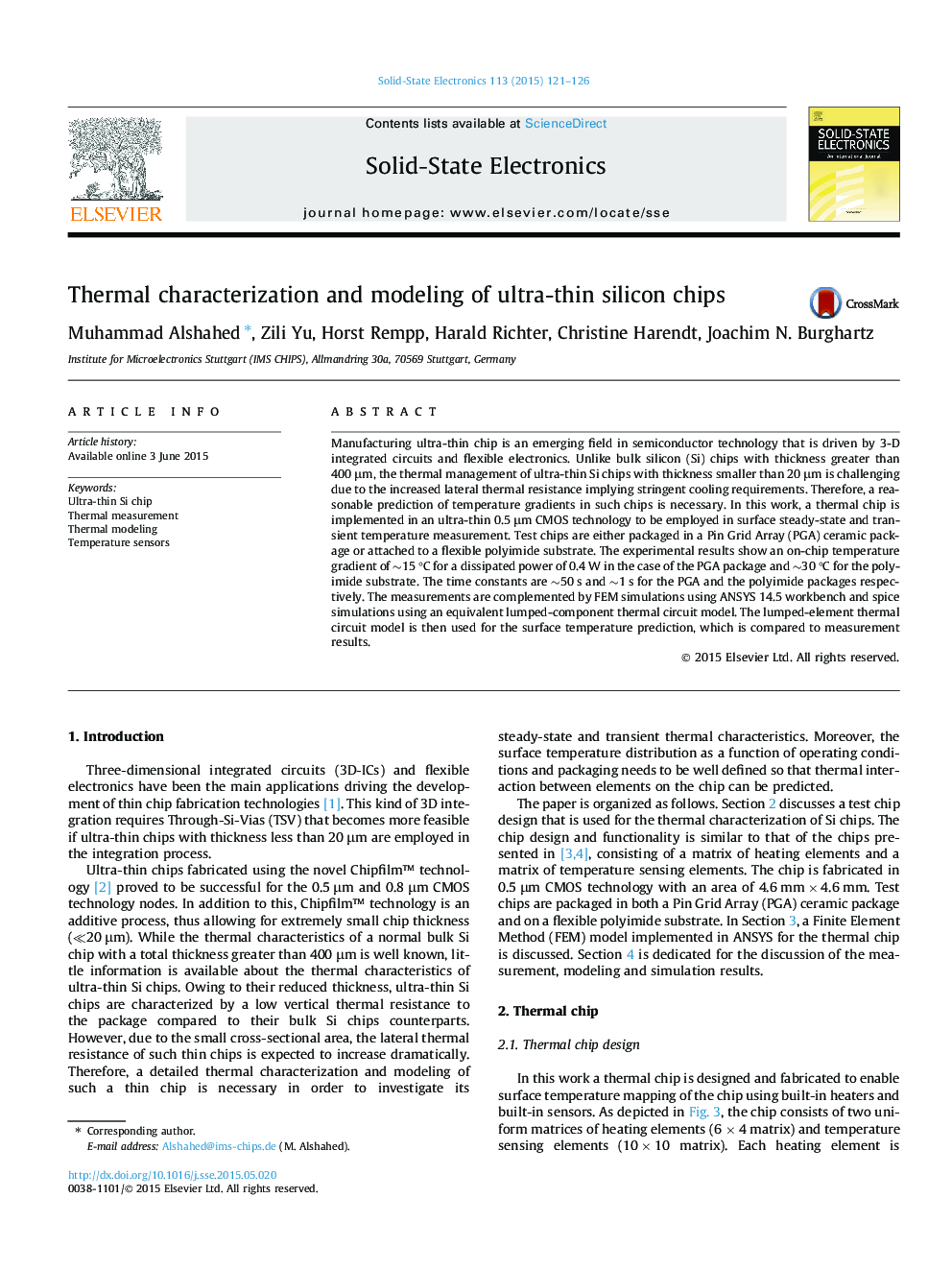| کد مقاله | کد نشریه | سال انتشار | مقاله انگلیسی | نسخه تمام متن |
|---|---|---|---|---|
| 747844 | 1462219 | 2015 | 6 صفحه PDF | دانلود رایگان |
Manufacturing ultra-thin chip is an emerging field in semiconductor technology that is driven by 3-D integrated circuits and flexible electronics. Unlike bulk silicon (Si) chips with thickness greater than 400 μm, the thermal management of ultra-thin Si chips with thickness smaller than 20 μm is challenging due to the increased lateral thermal resistance implying stringent cooling requirements. Therefore, a reasonable prediction of temperature gradients in such chips is necessary. In this work, a thermal chip is implemented in an ultra-thin 0.5 μm CMOS technology to be employed in surface steady-state and transient temperature measurement. Test chips are either packaged in a Pin Grid Array (PGA) ceramic package or attached to a flexible polyimide substrate. The experimental results show an on-chip temperature gradient of ∼15 °C for a dissipated power of 0.4 W in the case of the PGA package and ∼30 °C for the polyimide substrate. The time constants are ∼50 s and ∼1 s for the PGA and the polyimide packages respectively. The measurements are complemented by FEM simulations using ANSYS 14.5 workbench and spice simulations using an equivalent lumped-component thermal circuit model. The lumped-element thermal circuit model is then used for the surface temperature prediction, which is compared to measurement results.
Journal: Solid-State Electronics - Volume 113, November 2015, Pages 121–126
